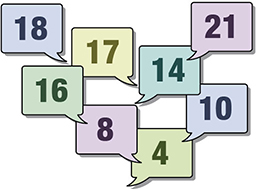1 Children and the law
Under the law, children are treated differently from adults. The law recognises that children are not always capable of making the decisions necessary to regulate how they live their lives. It accepts that they have different priorities and needs from adults. On occasions their vulnerability means that they require a special level of protection or more support than adults. You explore, as we consider various issues, how the law has recently developed to reflect changing attitudes towards children and the further recognition of their sometimes complex needs. There are various legal provisions in place to address this and we will examine these in later sections.

Before you start considering children and the law you need to be clear about how the word ‘child’ is defined.
Activity 1 Definition of a child
What do you think is the definition of a child? Take a couple of minutes to think about it. When does a child become a child? Is it before or after birth? Is a child a person under a certain age? If so, what age? Or is there another way of defining a child? Is a child a person of particular mental ability? Could such a definition as this include individuals of any age who have a certain degree of learning difficulty?
Comment
You may have reached a number of definitions and even looked up the word ‘child’ in a dictionary. There are many definitions of the word ‘child’, but it may surprise you to know that there is no single definition in Scots law as to what defines a child. As we will see, one can sometimes be a child for one purpose and not for others. However, the definition of child is always related to age and not to a person’s mental ability. Individuals, who, due to a disability, retain the limitations of power of children, can legally be adults.
In Scots law a person first becomes a child when they are born. Although we may refer to an unborn child, the law does not recognise an unborn individual as being a child. Unborn children do not have the same rights and protection as children , for example, they do not have the right to be a party to legal proceedings (the legal term for which is called ‘standing’) prior to their birth. This matter has not been considered widely by the Scottish courts but featured in the case of Kelly v Kelly [1997] SC 285. Mr Kelly went to court in an attempt to prevent his wife from terminating a pregnancy. The Court of Session considered that if the father of a foetus was to have the right to prevent the pregnancy being terminated, this could only be if he was acting on behalf of the foetus. It held that a foetus was, in law, part of its mother’s body and not an individual with actionable rights. On that basis, Mr Kelly’s application was unsuccessful.
So, a child legally becomes such when physically separated from its mother at birth. After this, whether or not a person is a child for any particular purpose will depend on what age they are.
What do we mean by age? This may seem a silly question but think about it for a moment. When we talk about someone being, say, 15, what exactly do we mean by that?

Scots common law provided that an individual attained a certain age at the moment of that anniversary of their birth. So an individual born at 2.15 p.m. on 1 January 1980 legally became aged 10 at 2.15 p.m. on 1 January 1990. They would be aged 9 until 2.14 p.m.
However, the Age of Legal Capacity (Scotland) Act 1991 changed the position for birthdays after it came into force on 25 September of that year. After that date a person attains a particular age at the beginning of their relevant birthday. The time of birth is no longer relevant. However, it is important to remember that the new provisions only apply to birthdays after 25 September 1991. Calculation of age prior to that date is still according to time of birth. The Act also considers the position of birthdays falling on 29 February. Age is then calculated from 1 March, other than in leap years.
You now considering what powers a child has in relation to various aspects of the law. This is referred to as capacity, the ability to enter into a legal transaction.
